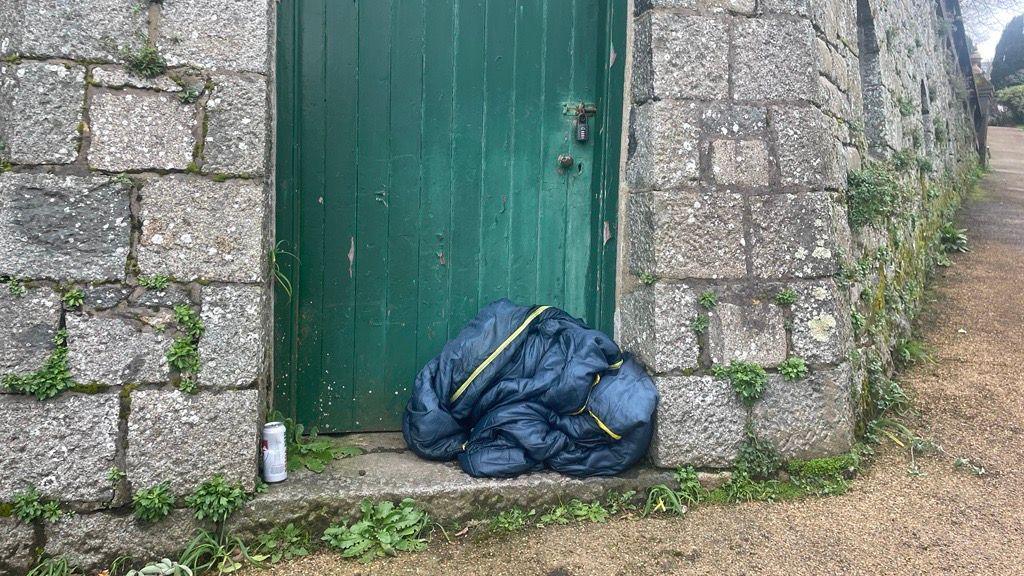'Sleeping at bathing pools was my lowest night'
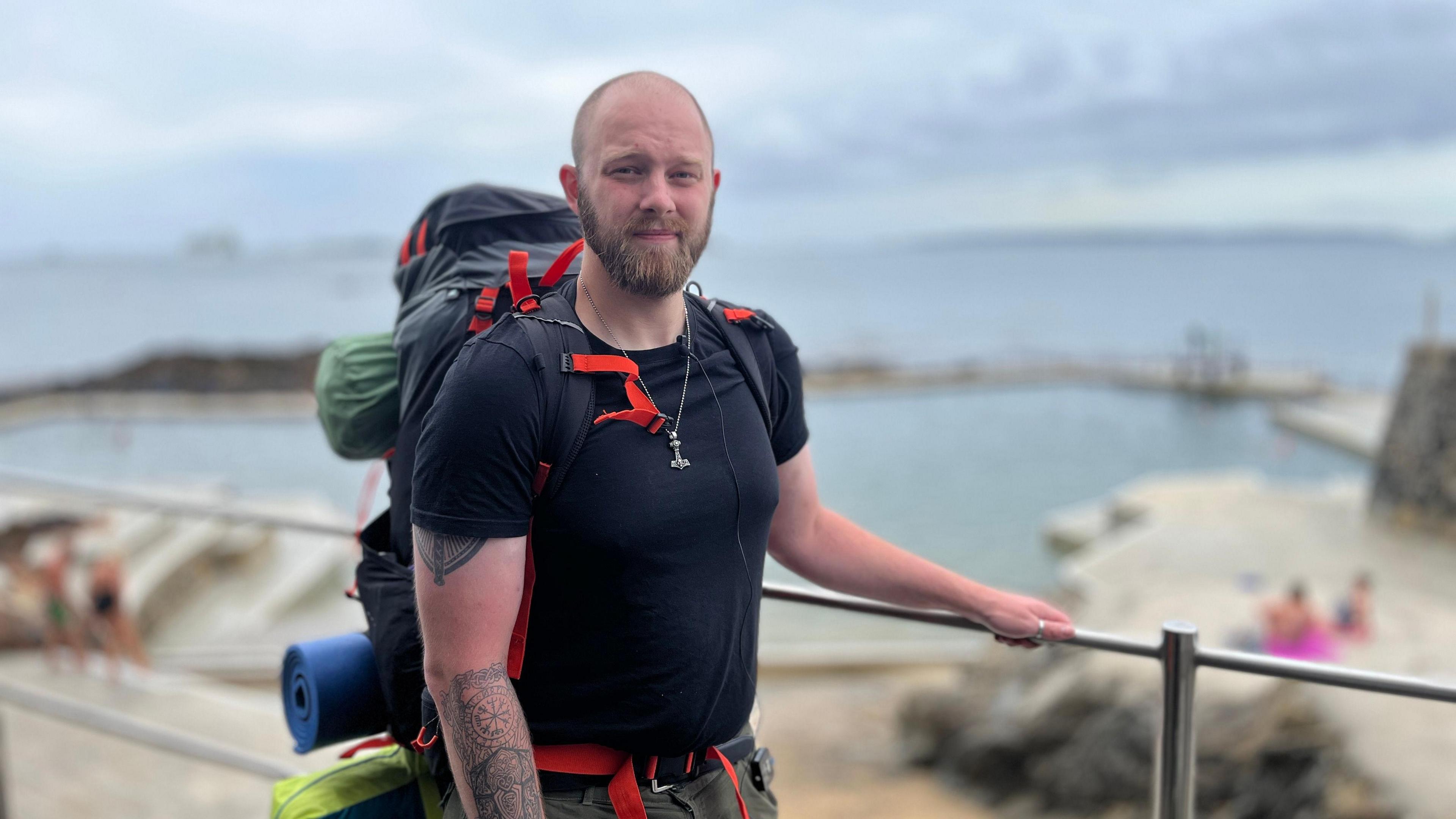
Despite working two jobs Tian ended up sleeping rough
- Published
A man who has been sleeping rough in Guernsey for more than a week said spending his first night on a bench at his local outdoor bathing pools was his "lowest point".
Tian, 29, became homeless despite having two jobs and slept in the shower area at La Vallette in St Peter Port after several weeks of sofa surfing.
He said: "The night I spent at the bathing pools was absolutely the lowest night I've ever had", adding that he questioned what the "point [was] anymore".
Deputy Steve Williams, President of Housing, said: "We know there's a [hidden homelessness] problem, we know we need to do something about it."
Tian said he went through an emotional "maelstrom" when he realised he had nowhere to spend the night.
He said he wondered whether he had hit "rock bottom" or there was worse still to come.
Despite feeling "hopeless", he said he found a "nice quiet spot", adding: "There was shelter, water, I could go to the bathroom and not worry."
After about four hours of broken sleep he was woken by a cleaner at 03:00 BST who apologised and said he could stay.
"I felt a human connection for once, which was nice," he said.
Charlie Cox, from charity At Home in Guernsey, external, said more than 25 new people facing homelessness had contacted her to ask for help during June alone.
She said: "Although everyone's experience is unique, a lot of those people are sleeping outside, in their cars, in different places.
"Hidden homelessness really is a problem in Guernsey."
She said the service could offer help and signpost people to other services on the Channel Island, which has a population of 65,000.
Tian works in a shop and a hotel but has been unable to find housing at short notice
Tian said he had been asked to leave his previous flat several weeks ago by his flatmate, from whom he sublet, after their relationship "ended up going quite sour".
This coincided with moving from a job that paid weekly to one paid monthly in arrears, temporarily reducing his income.
He spent two weeks sofa surfing with a series of friends but did not want to "risk their landlords finding out".
He said both his employers were aware of his situation and had been "very sympathetic", allowing him longer breaks to make phone calls and visit a launderette.
'Flesh and blood'
Tian said he had posted on Facebook and was registered with local rental agencies.
He had also tried emergency accommodation without success, he said.
As someone born in Guernsey, he felt the housing crisis was exacerbated by rental subsidies for some people moving to the island.
"It does feel isolating," he said. "You've got flesh and blood in the island.
"You work your whole life, [you pay] your taxes just to basically be shunted aside, left to find some quiet corner and just get on."
Tian said he hoped the States' new housing committee would do more to help islanders in his situation but he was not optimistic.
"Everything in Guernsey takes time," he said. "We've got people that will talk about [improving things] but no one who would actually drive [changes through]."
Tian said the States should "set up hostels, man, anything" even if it was just for "a night or two".
"You don't realise how much of a difference that can make to people at rock bottom."
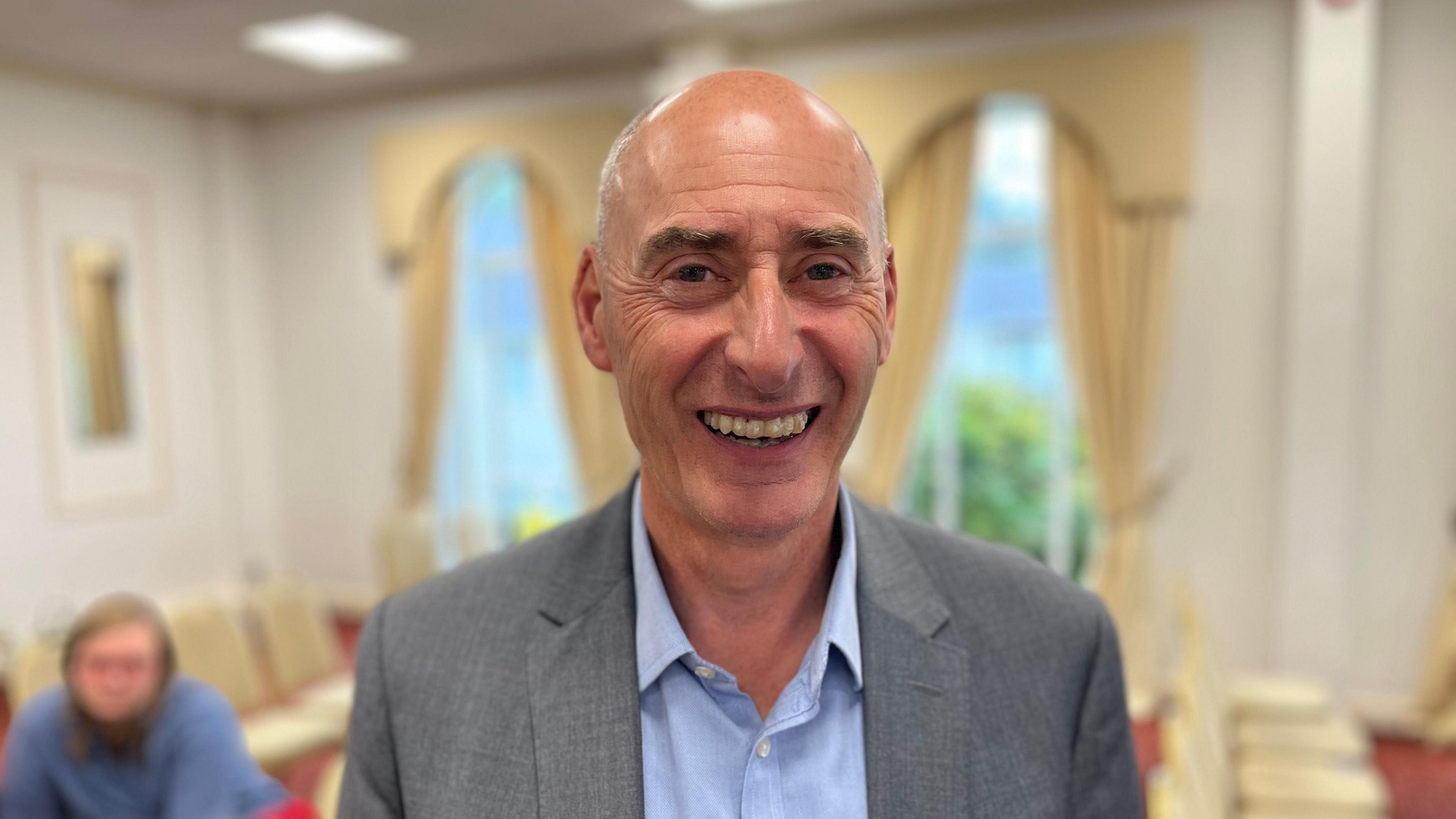
Housing minister Steve Williams said new emergency housing pods could be ready within 12 months
Deputy Williams said he wanted to explore alternative emergency housing options to "increase the supply".
He added: "There must be buildings out there [we could use]... ideally at a minimal cost."
He said he hoped 12 to 24 new modular units suitable for emergency housing could be ready within 12 months.
However, he said they would need electricity, water and drainage as well as planning permission, so it was important to "under-promise and over-deliver".
Williams also said two new emergency housing pods would be ready sooner and would not need electricity or mains water installed - so were primarily waiting for planning permission.
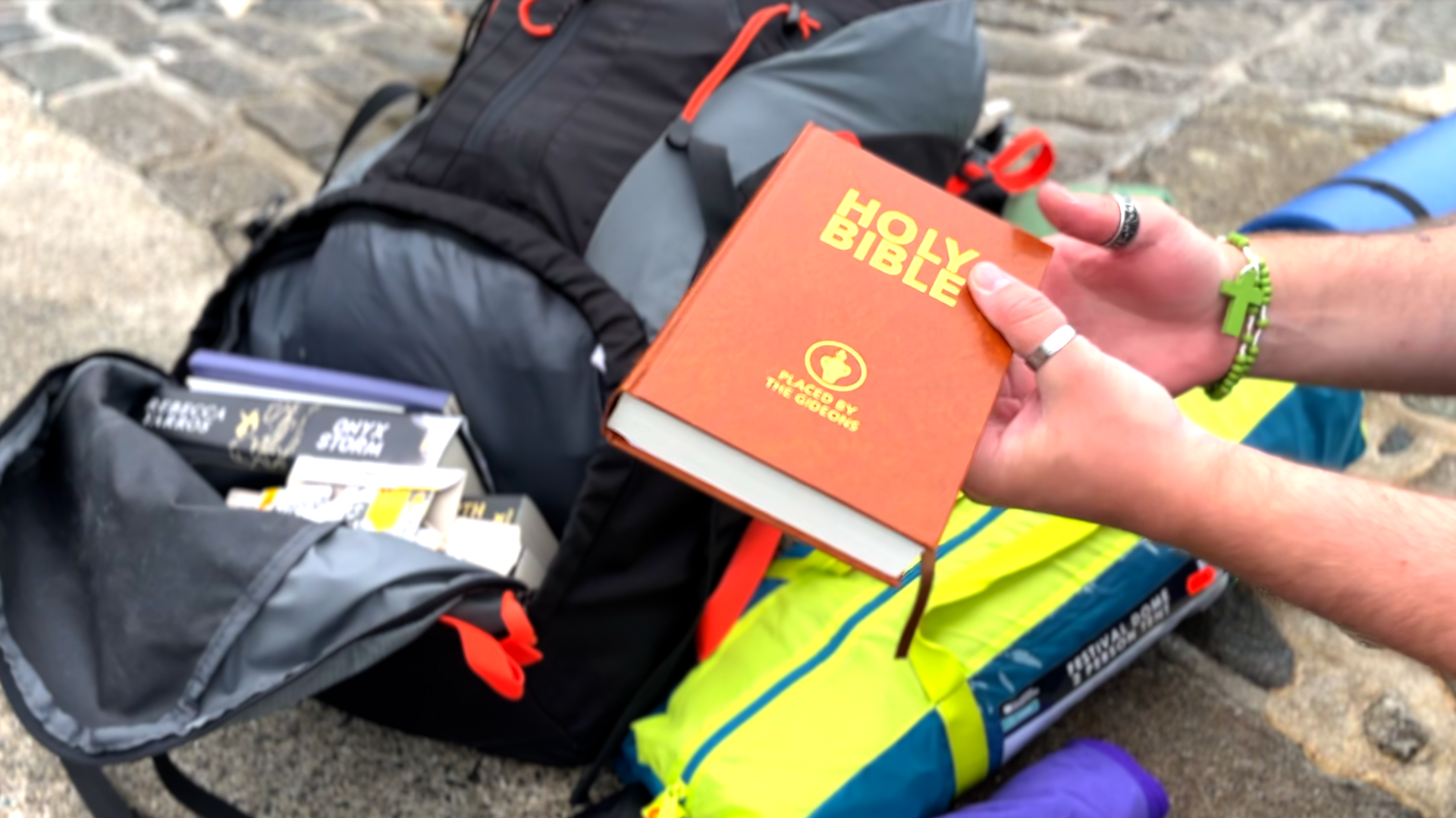
Despite not being religious, Tian has found comfort in going to church, reading his Bible and wearing a rosary
'Reason to keep going'
Tian has now bought a tent and rucksack and found a quieter sleeping spot, elsewhere on the island.
After some "bad nights", he had managed "about seven hours" sleep the night before he spoke to us, adding: "I finally got a bit of a lie in."
He had started to spend time each day at the Town Church despite not being a "religious person".
"[I went for] some silent words to myself as a bit of reflection," he said.
"Hopefully someone is hearing me - because no one else is now."
He now wears a green, plastic rosary on his wrist, which the church gave him, and keeps a Bible in his backpack to read when feeling low.
Despite finding solace in aspects of the church, Tian's plea to deputies was to make a material difference.
"There's a reason people go to churches," he said, "They want hope... a reason to keep going.
"So why don't you guys be the pillar for once, rather than us having to just struggle every day?"
Follow BBC Guernsey on X, external and Facebook, external and Instagram, external. Send your story ideas to channel.islands@bbc.co.uk, external.
Related topics
- Published14 July
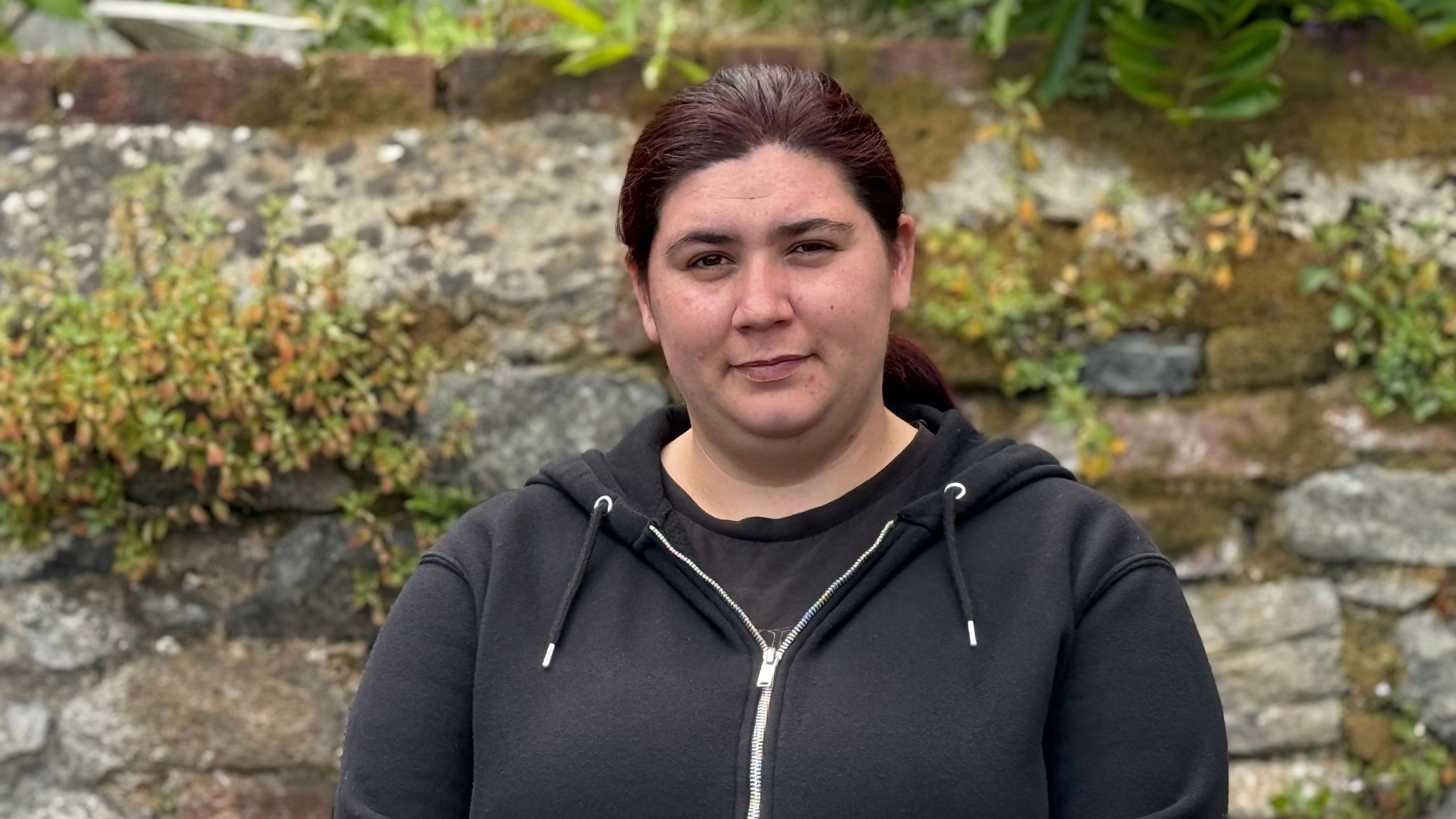
- Published15 July
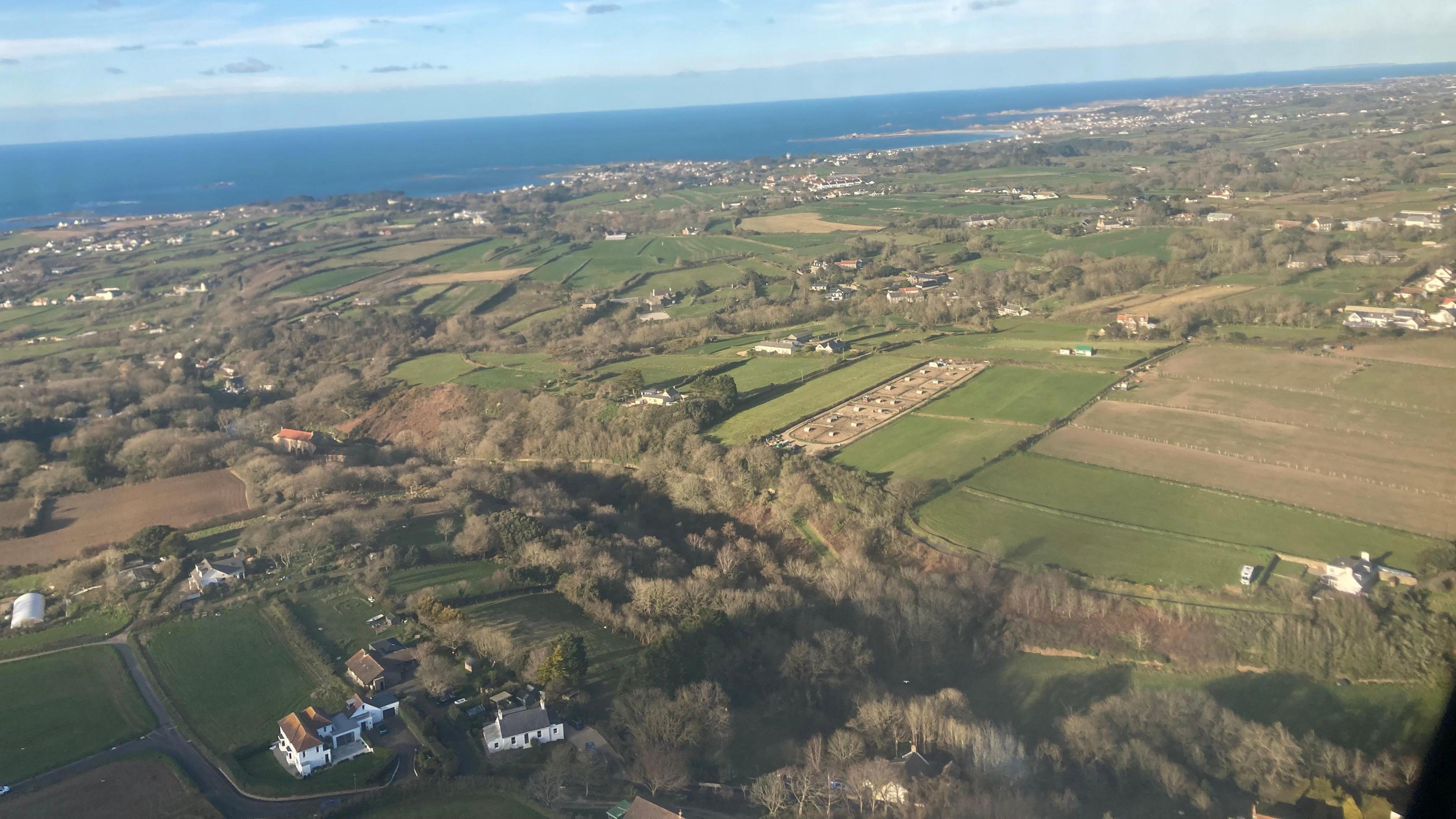
- Published5 June
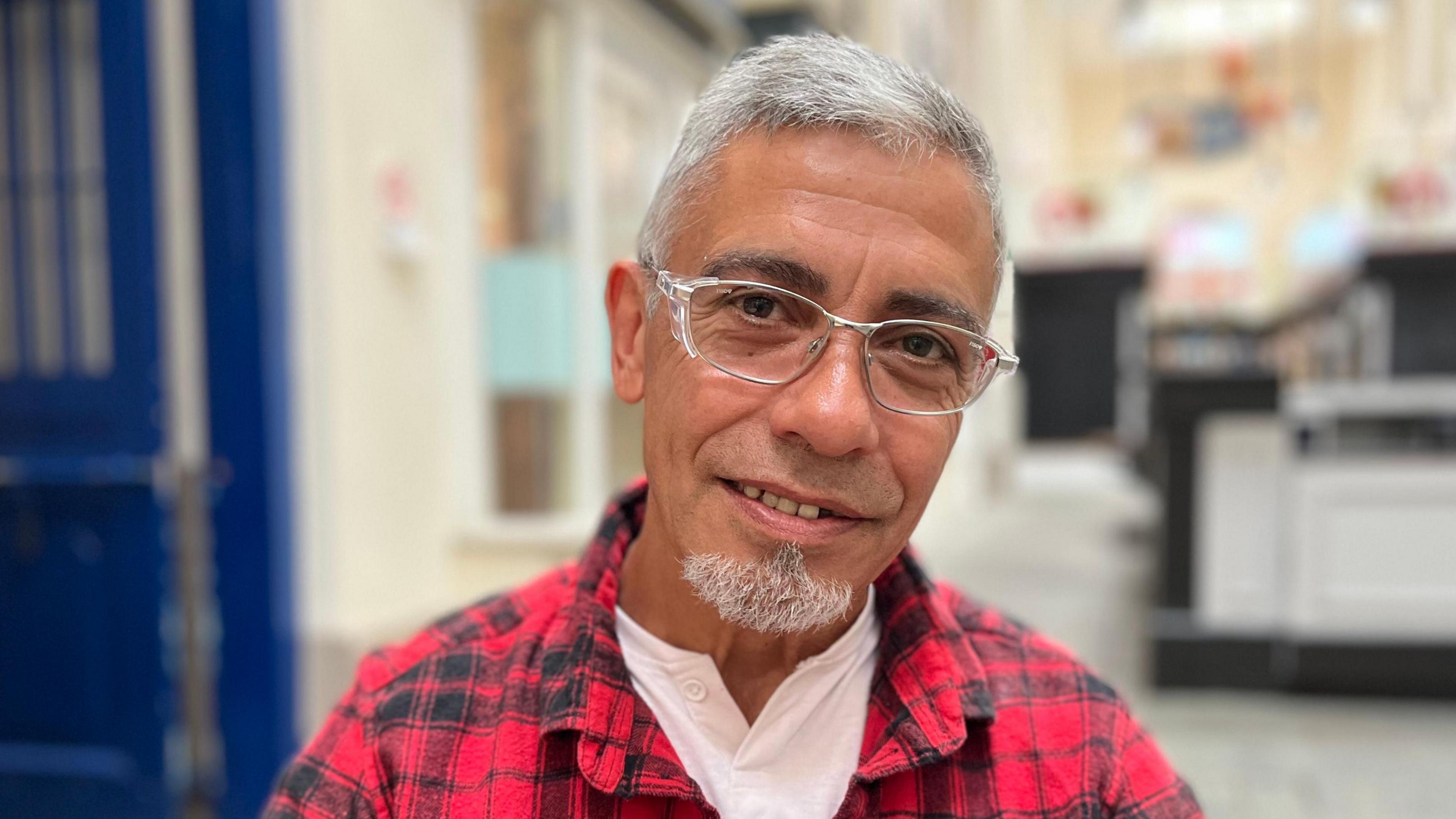
- Published3 September 2024
